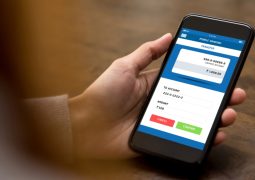Studies suggest that More Healthcare Companies are Getting Hacked than Ever Before
by 28/03/2016 16:430

Imagine if you were at the hospital for a routine check-up or an X-ray, and then a few months later you got a bill for a surgery or transplant that never happened, and ran up a huge bill?
This happened to snowboarder John Kuhn, was billed over $20,000 for a surgery that he never had. He went into the hospital and showed them that he had no scars, and therefore had not had any surgery, but the record was still there on the hospital’s records.
What this means is that the hospital’s hard drive had been hacked, and the information within had been stolen or sold. This isn’t an isolated case, either. Experts say that these kinds of incidents are happening much more frequently all over the world leading to an 11,000 percent increase between this year and last year alone.
Nearly 1 in 3 Americans deals with some kind of health record compromise, and most of the time they are completely unaware it happened, unless they see a bill. This means that criminals gain huge amounts of information about people, including their social security numbers, phone numbers, addresses, and even their personal health information. Many of these types of information are much more permanent than even credit card numbers, and last forever.
Later, these records show up in the dark web, where hackers advertise what they’ve been doing, and what they’ve stolen. They even make suggestions for you to use the information:
“You can use those profiles for normal fraud stuff or to get a brand new healthcare plan for yourself,” one hacker told an undercover NBC reporter. “This is where I get information from big data breeches as a commodity, and I sell them. Usually, the amounts of money made off of credit card charges are around $1-$3 apiece, and social security numbers bring about $15. But healthcare records, especially complete ones, I can sell for over $60.”
You can’t just cancel your personal information, and hackers know it. After they get all of that information, they own you. They create new accounts, fake your identities, and wreck your credit.
You have to protect yourself by implementing the following best security practices:
- Make your passwords more complicated, including adding numbers, symbols and capital letters
- Don’t use the same accounts for email, banking, and shopping transactions.
- Use PIN codes on IRS returns, and change them yearly
- Always avoid giving out your social security number, especially the last four digits. This applies even to hospitals, doctors, and rental agencies. You never know how secure their systems are.
“If possible, opt to create a PIN for sensitive information whenever possible,” says IBM Security Vice President Caleb Barlow. “Many hospitals are fine with that these days. Take time to ask about their security policies if possible. These days, you really have to worry about how people are protecting your information.”



